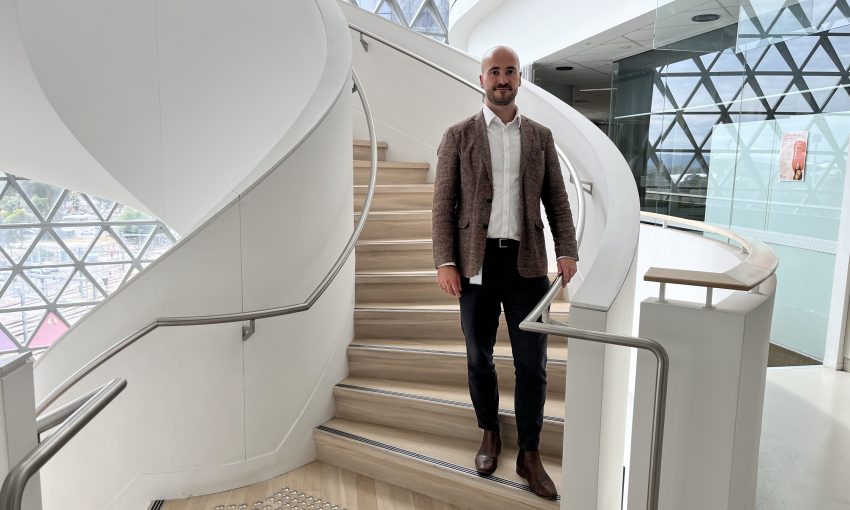CityMag talked with researcher and 40 Under 40 alumni Joep van Agteren about creating mental health-friendly cities for young people.
Creating mental health-friendly cities
Joep van Agteren is a former CityMag 40 Under 40 award-winner and is currently the Co-Lead of Be Well Co, a mental health research arm spun out of the South Australian Health and Medical Research Institute (SAHMRI).
Joep’s work at Be Well Co. focuses on conducting research and mental health interventions within industry and the community.
His work ties in with a study published in a leading international science journal, Springer Nature, in December 2023 titled ‘Making cities mental health friendly for adolescents and young adults’.
The study looked at 518 people under 35 from 53 counties, and recommended that we rethink how we design and run cities to benefit the mental health of young people.
CityMag sat down with Joep in his office at SAHMRI to discuss the study’s relevance to Adelaide.
Joep has a PhD in psychology looking into people who languish in everyday life but are not formally diagnosed with a mental illness because they do not display stereotypical symptoms.
He began studying psychology because his family has a history of mental illness. His mother has schizophrenia and although it is generally under control, she sometimes has psychotic episodes.
“In my entire family, there’s quite a lot of people that struggle, so it’s always been an interest area of mine,” says Joep.
Joep says the study in Springer Nature has some important findings, although he takes issue with its “ideological tangent”.
“I think the research agrees with the fact that cities can bring serious risk factors for someone’s mental health, but I wouldn’t go as far as making such a doom and gloom statement that they would make, particularly when you look at the Adelaide context,” he says.
According to the study, “most evidence points to urban living as a risk factor for poorer mental health, yielding increased risk for psychosis, anxiety disorders and depression,” with statistics showing that cities will be home to 70 per cent of the world’s children by 2050.
It found that “rising levels of urban inequality, violence, stressful racial or ethnic dynamics in urban neighbourhoods, exposure to environmental toxins, lack of green space, inadequate infrastructure and fear of displacement increase poor mental health and disproportionately affect marginalised groups.”
Joep says that some of the risk factors listed in the study, such as lack of green space, are not relevant to Adelaide. However, he said that lack of social connection is a major risk factor for poor mental health.
“A lot of those risk factors might be relevant in New York or Detroit, like a super-dense city. We in Adelaide don’t have a lot of that, like really big complexity. We have a lot of green space. Housing is quite unaffordable, but it’s unaffordable anywhere,” he tells CityMag.
“Disconnection is a big one. If a city is big, it’s sometimes more difficult to find your own local community.
“I know this article is more centred around youth, but when you go into older aged adults, particularly older aged men, it’s quite a big problem – that lack of connection.
“Being able to connect with like-minded people, sometimes that focuses on transport and sometimes the public transport here [in Adelaide] is not… I wouldn’t rate it as the greatest in the world.”
When asked how CityMag readers can improve their mental health, Joep points to ‘A guide to what works for mental wellbeing’ he co-authored with Beyond Blue.
The guide suggests various interventions such as social interaction, physical activity, art, acceptance and commitment therapy (ACT), life coaching and cognitive behavioural therapy (CBT).
Joeps tells CityMag that while the study “is super geared towards the negative side” at Be Well Co, they focus on “what makes something worth living in.”
“I think a lot of the answers people gave, they were actually talking about self-development opportunities, ways to connect.
“That’s not really related to mental illness. That’s really about us feeling better as humans.”
Nominations are now open for this year’s 40 Under 40 Awards.




